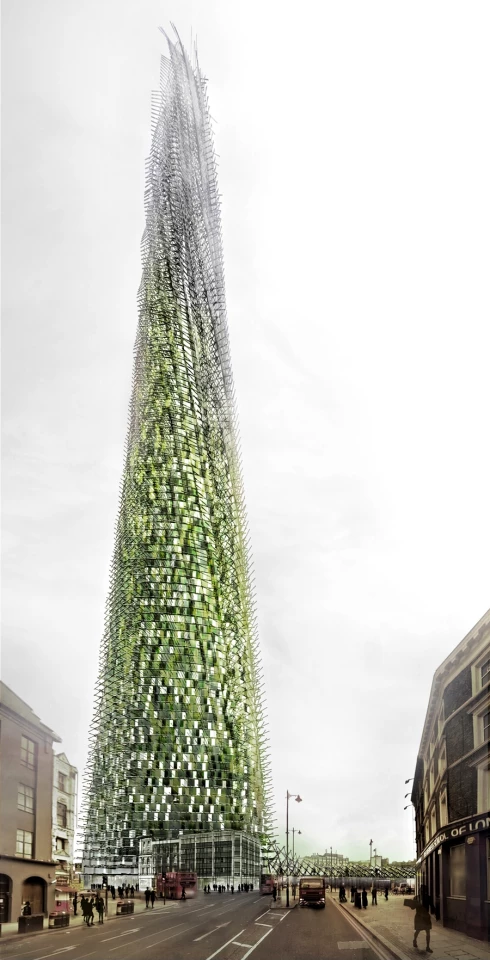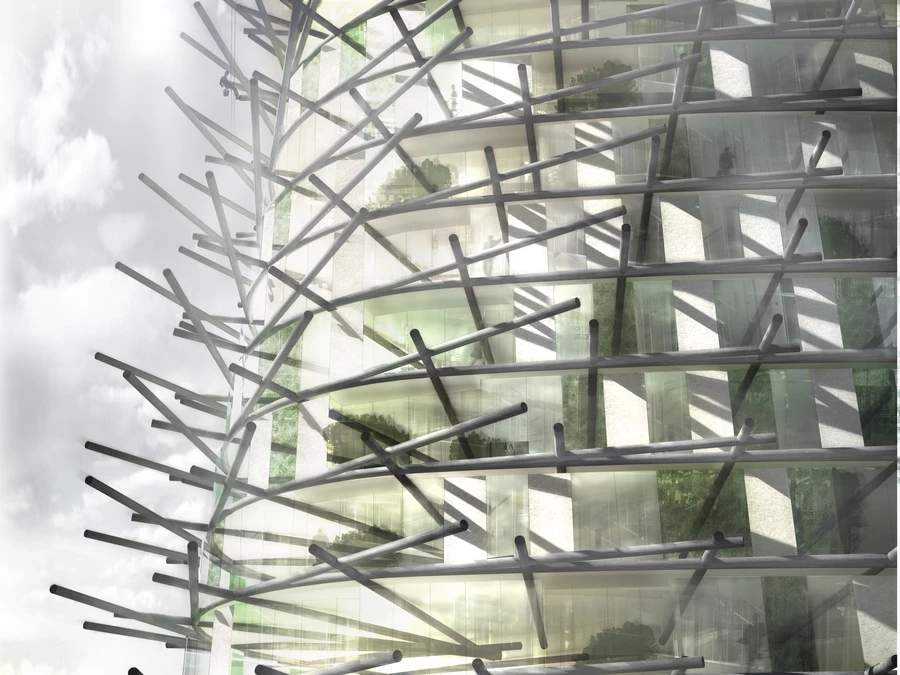Green structures and buildings are a growing trend. Vertical gardens like the Clearpoint Residencies apartment block in Sri Lanka and The Living's Hy-Fi organic sculpture in New York are two examples. Now, Chartier-Corbasson has designed a concept for a skyscraper that would be built from the recycled waste of its occupants.
The Organic London Skyscraper concept seeks to show how the financial outlay required to build a skyscraper could be moderated. The idea proposes that the paper and plastic waste created by the existing residents or tenants of a building could be recycled and used to create panels for its continued construction. The building would grow using the waste of its residents and Chartier-Corbasson suggests that enough materials could be produced within a year to create the building's façade.

To minimize costs and make cash-flow more manageable, the proposal calls for waste materials to be collected and sorted within the building, which would then be refabricated on-site into construction panels. In addition, the quicker that vacant spaces within such a building are taken, the quicker construction would be completed due to the increased amount of recyclable waste being produced. In this way, the building is self-regulating.
Chartier-Corbasson proposes the use of a scaffolding structure inspired by the bamboo scaffolding used in Asia to enable the building's construction. The scaffolding is all one size and would be provided in prefabricated sections to simplify assembly. Rather than the scaffolding being removed once the building's construction is complete, it would then become part of the building.

The designers say that its hollow tubes would reduce wind impact and would contain small wind turbines for generating electricity to contribute to the building's energy needs.
The pyramid shaped building would allow for access to different levels by way of an elevator. Chartier-Corbasson says that there would be enough access via elevator to avoid the need for a tower crane. The building's design includes landings, lobbies, and spaces for areas such as gyms, conference rooms, restaurants, bars and an observation platform.
Source: Chartier-Corbasson










